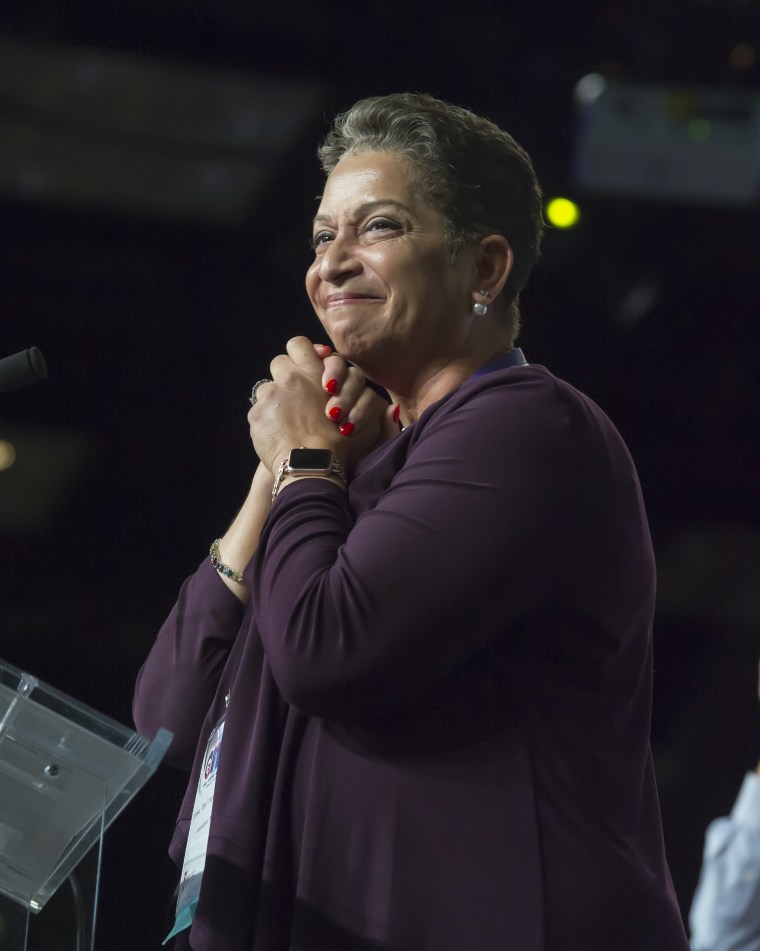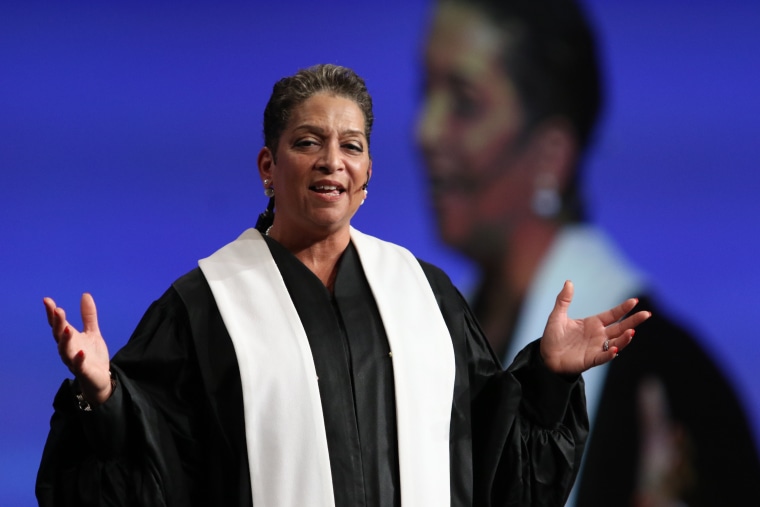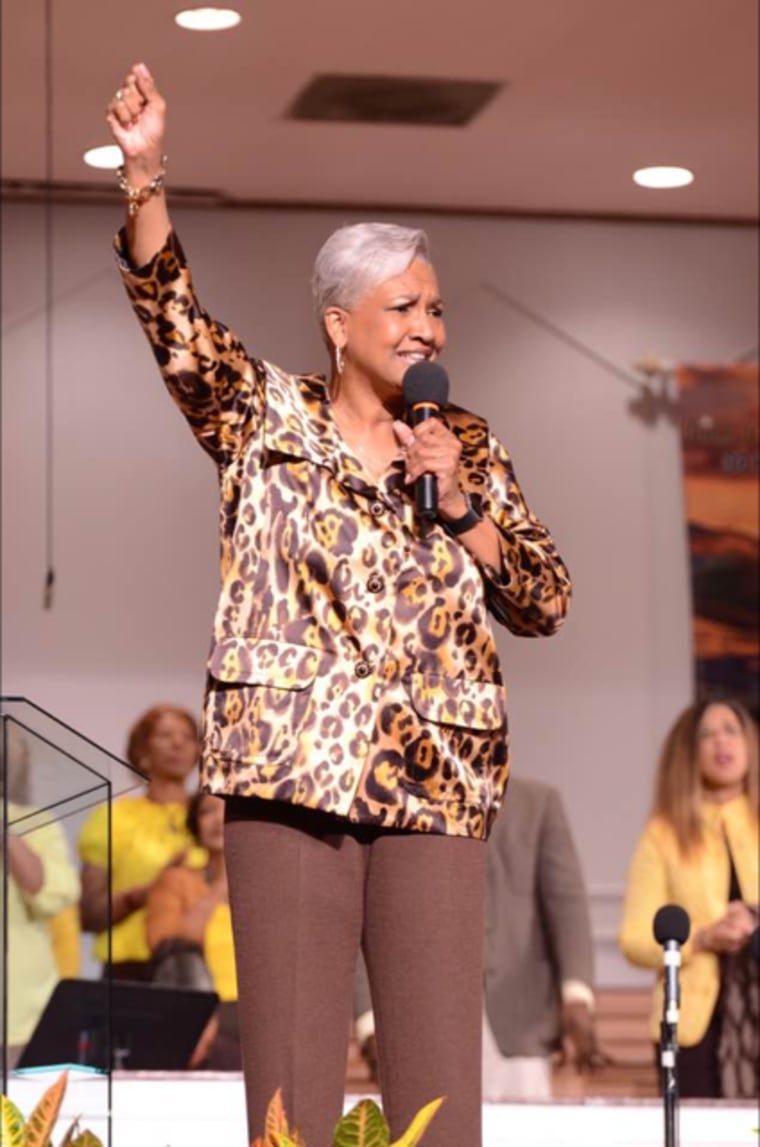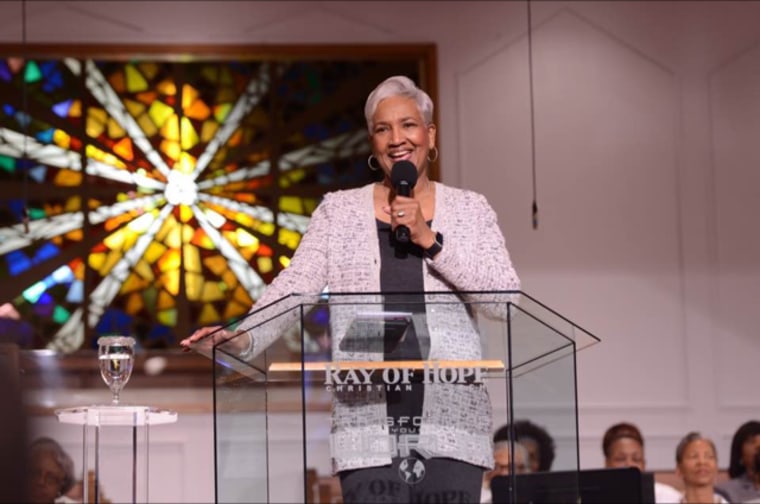As far as Teresa Hord Owens is concerned, the Disciples of Christ Church has something really big to say.
On July 9, the congregation overwhelmingly elected Owens general minister and president of the Protestant denomination. She is now the first African-American woman, and second woman, to lead the denomination.
The historic nature of Owens’ election, which has also been lauded as the first time an African-American woman has ever led a mainline Protestant denomination in a solo capacity, is not lost on Owens.
She considers her election one of both hope and expectation.

“The hope and expectation is both good and bad,” she said. “There are definitely challenges with being the first. I can’t help but to think about when Senator Barack Obama was elected president, many professed that we were post-racial and that the race issue could be set aside.”
There have been some whispers on social media that Owens could not be the first as far as leading a mainline denomination is concerned, referencing the election of the Rev. Denise Anderson as co-moderator of the Presbyterian Church (PCUSA) in 2016.
Other reports reference the election of Dr. Joan Salmon Campbell’s election as PCUSA moderator in 1989. Anderson, in a tweet, referenced Owens as the first, clarifying that the Disciple’s general minister more accurately corresponds to the PCUSA’s stated clerk position, not moderator.
Being the among the first is not enough for Owens.
“Justice must be visible. There is no magic gavel or magic wand that I have to wave that eliminates the vestiges of racism and white privilege from our church. We cannot fight racism if we still see difference and Blackness as being deficient,” she said. “I must be seen as a Black woman. I cannot just be the token. I cannot be expected to turn away from my particular cultural expressions. Being a Black woman has to be just part of who I am and it has to be part of my term as general minister and president.”
General minster and president is not simply an executive position, said Owens. The role is also one of lead pastor for the denomination. One of her greatest challenges, she believes is ensuring that all members of the denomination continue to feel as though they have a voice and what she calls a “place at the table.”
“As Disciples, we pride ourselves on being able to hold it together while wrestling with our differences. We are a theologically diverse denomination meaning our members are both theologically conservative and liberal,” she said

Due to those differences, they are careful not to reinforce the same divisions seen in modern day public square, where conservatives are always painted as wrong and liberals are always painted as right.
“The work of Christ is to fight for justice, feed the poor, and clothe the naked. Whatever political party you have, let’s make sure it is Christian,” she added. “We are welcoming, regardless of what political affiliation you possess. We do not exclude anyone because we disagree on a piece of doctrine. We do it with love.”
Love, she said, does not destroy one another, denigrate, dehumanize or births disrespect because of differences.
“We all have the right to disagree,” she said. “But even though I disagree with you, I have to hold you in a bond of love. If not, we will fracture the institution of the church.”
Related: Six Black Women at the Center of Gravity in Theological Education
In 1969, the Disciples merged their Black and predominately white groups officially, Cherilyn Williams, the denomination’s associate vice president of marketing and communications, told NBC News. Since then, the racial/ethnic diversity of the denomination has grown. According to Williams, the membership is approximately 85.5% Caucasian, 1.3% Hispanic, 12.9% African-American, 0.9% Asian/Pacific Islander.
“We have 450,425 participating members reported, but not all congregations report numbers so this is an educated guess,” she said. “There are 2,066 persons who are coded as pastor or student pastor of a congregation. Of that number, 522 are women; 275 are African-American and 82 are African-American women.”
Women, Williams added, have been the backbone of the denomination from the beginning.
“Our health and social service ministry, National Benevolent Association, is celebrating its 130th anniversary this year. It was started by six women in St. Louis who were concerned for the children,” she said. “Our Disciples Women lead the denomination in awareness of everything from human trafficking to disaster relief. We have women heading some of our seminaries and colleges."

Their Hispanic ministries has a Latina as interim pastor – a first for that historic ministry. The Division of Overseas Ministries/Global Ministries is led by a Black woman. And about half of their 30 regional ministers are women — six of them Black women.
Rev. Dr. Cynthia Hale, founder and Senior Pastor of Ray of Hope Christian Church in Decatur, Georgia, is one of those women. As a lifetime member of the denomination, she said Owens’ election means that there will be a leading voice for justice and equality for all people.
“As well as unity, not just among Christians, but all people,” she told NBC News.
Related: U.S. Episcopal Church Installs First Black Leader
She describes Owens as “very much her own person,” who is an activist and intellectual; who is for justice, and believes in the quality and equality of life for all individuals.
“As someone who has experienced several firsts in my 30 years of ministry, I know she will have to face challenges,” Hale explained. “There will be the expectations that she will solve all of the problems the church faces. And there will still be racism she will have to face, and sexism. But not only will she have to prove herself; we, as a church and its members, will have to prove ourselves.”
Owens sees an opportunity and wants to seize it.

“I really feel a responsibility to be dialoguing about ways to connect, for me to be a generational bridge for not just women, not just Black women, not just young Black women, but young people, and young people of all backgrounds, experiences and hues,” she said, adding that it's her goal to help a generation that has become cynical about organizations.
Ensuring that those within the church are committed to the mission and purpose of the church, while also revitalizing people’s desires to connect with the church, is also a focus.
“Decline is due to the ideas that institutional affiliation is changing within this generation. They connect in different ways as human beings. I am more concerned with how is the church going to be responsive to their change of connection,” she said. “If we need to alter the way they connect, to let them know that the things they care about in terms of social justice are the things we care about within the church, then so be it.”
